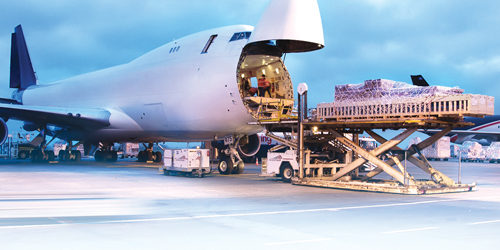
Danos Athanasi and Kate Sun in Rawlinson Butler’s Corporate Team ask Andy Leslie, Chairman of Network Aviation Group, how the company expanded
You’ve successfully established your business and now you’re looking for growth. Organic growth is slow and acquisitions can be daunting. Here’s how one medium-sized private company went about it.
Network Aviation Group started business in 1985 with two partners who put in £500 each to form a company that managed one Boeing cargo aircraft for DAS Air Cargo, a Ugandan cargo airline. By a combination of organic growth and strategic acquisitions it has grown into a successful group of companies. They cover virtually all aspects of aviation cargo sales, logistics and management of freighter aircraft offering a variety of sales and services to client airlines as well as managing a fleet of freighter aircraft on a network of scheduled routes and charters throughout the world.
Expand in steps, outward or across
“We looked continually for businesses that either did the same thing that we did but in new locations or did a different but related business,” explains Andy. “Thus we expanded from freighter aircraft management to general sales and services agency to cargo services on passenger airlines and from East Africa to Europe, the Middle East and Canada.” Know what you do well and keep your eyes open for businesses that are close enough for your expertise to be relevant so that you can build on what you’ve already achieved.
Take it a step at a time
NAG’s preferred expansion method has been to start with a commercial partnership; if this works well, they consider either taking an equity stake in their business to form a joint venture or buying them outright. RB’s Danos Athanasi said: “Starting with a commercial partnership avoids the risk of snapping up a business that proves problematic to integrate and manage; the joint venture format often works where an outright takeover would risk losing key managers and customers from the target company; at the same time, an outright takeover could work where the founder of a one-man business is ready to retire.”
Work out what you really want
Yes you want the target’s business, but is it in particular -
• their assets?
• their staff?
• their local connections or licences?
“While our pattern has been to acquire equity, we are awake to the possibilities of an asset purchase,” Andy says. “We can envisage circumstances where we would want to acquire a company’s aircraft or its contracts but not its contingent liabilities, and we have discussed with our legal advisors when an asset purchase might suit our ambitions.”
Either an asset purchase or a share purchase can work to acquire staff, but another way to acquire key senior staff is to hire them as consultants rather than employees – a format that, with a profit-based bonus, is also a helpful structure for an earn-out for a retiring owner who is to be phased out of the business rather than either kept on indefinitely or abruptly retired from one day to the next.
Acquisition is not always the answer
While a nice little thriving business to bolt on may look attractive, sometimes it would be more cost-effective to grow organically. Take a look at the staff and connections you already have, think about the timing (the faster you need to expand, the more likely you are to need to acquire other businesses) and consider whether your existing management would be better employed fostering internal growth or putting the time and effort into an acquisition.
Choose your professional advisers
Acquisitions need lawyers and accountants. Although many firms can advise on most acquisitions, where you have a programme of expansion it saves time and expense to find a good accountant and a good lawyer and use them for the whole programme. Andy says, “The RB Team, led by Corporate Partners Tim Sadka and Danos Athanasi, has grown to understand our business, how we work and what our priorities are. They don’t have to spend time getting to know us but can get straight into the nitty-gritty of each deal without having to refer back to us for instructions on every detail – they know when to bother us and when to get on with it. A level of trust has built up through working together many times before.”
Allocate enough management time
Acquisitions are always time-consuming. Trusted professional advisers can take some of the burden, but even so you must budget for many management hours to be spent on finding, negotiating and completing the deal and many more on integrating the new business into your own company. Failure to do this means that either the new business won’t be properly integrated or your original business will suffer while you integrate the new one.
Learn from experience
Unless you are unusually lucky, there will always be the good targets that get away and the seemingly good acquisitions that go wrong. Minimise these by:
• doing thorough research before you start
• identifying what you want and where your deal-breakers are
• doing good commercial, legal, tax and accounting due diligence between agreeing the heads of terms and completing the deal
• listening to your gut and being prepared to walk away if the deal really isn’t working
• if an acquisition does fall through, sitting down with your advisers to work out what went wrong and how to avoid it in future.
If you would like to know more, contact Danos Athanasi or Kate Sun in RB’s Corporate Team on 01293 527744.






